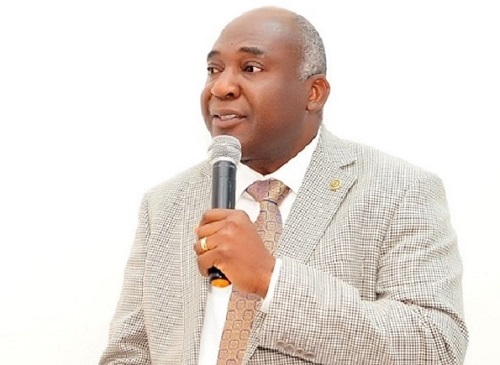President of the Institute of Directors-Ghana, Rockson Kwesi Dogbegah, has called for increased scrutiny into the suitability of persons who make up boards of companies – particularly financial institutions, as he said this will forestall a recurrence of the high-profile industry-wide scandals which have bedevilled the financial services landscape for some years now.
Citing previous measures aimed at bringing sanity into the country’s comparatively nascent financial services sector – which includes introducing the Financial Sector Adjustment Programme’s (FINSAP) three phases, as well as the Non-Performing Assets Recovery Trust (NPART) – he argued that with operations ever-evolving and the regulatory framework following suit, the most effective means of minimising misconduct at the board level is to ensure the right people become board members.
“From 1995 (the end of these measures) to 2015 (the next financial sector crisis) was just 20 years and we were back to where we were a few years before. As a country, I would want us to put that in perspective… to see if what we are doing is tackling the symptoms or tackling the disease,” he said at the fourth edition of the UPSA Law School quarterly banking roundtable series.
Continuing, he stated: “The mindset with which we have been going into the boardroom has been wrong. We have strengthened the technical requirements over the years, yet demands on the quality of people – their integrity and sense of stewardship – have not been strengthened as much. This is what we must focus on”.
Mr. Dogbegah added that the absence of detailed, empirical studies on the subject of corporate governance in the country has hampered the institution, enforcement and adherence to existing regulations. He therefore called on stakeholders, including regulators of the financial sector – Bank of Ghana and Securities and Exchange Commission, the Institutes of Bankers and Directors, as well as academia to conduct studies in this regard.
Commenting on the subject, Deputy Head of Banking Supervision at the Bank of Ghana, Ismail Adam, stated that measures undertaken by the banking sector watchdog following the most recent crisis are robust enough and will ensure that only persons – individually and as part of a group – who have the requisite skills and proven track-record of integrity will be allowed to lead financial institutions.
These measures include the Corporate Governance Directive of 2018; the Fit and Proper Persons Directive for Regulated Financial Institutions (RFIs); as well as a related framework – the Companies Act, 2019.
He also hinted that a report on the effectiveness of these efforts on the performance of RFIs, particularly banks, will be published in the short-term.
Similarly, the Chief Operating Officer of Absa Bank, Michael Mensah-Baah – who was also part of the panel and speaking on the theme ‘Banks, Corporate Governance and Risky Dealings’, said boards must not act contrary to the mission espoused by their institutions, as this breeds the wrong company culture.










